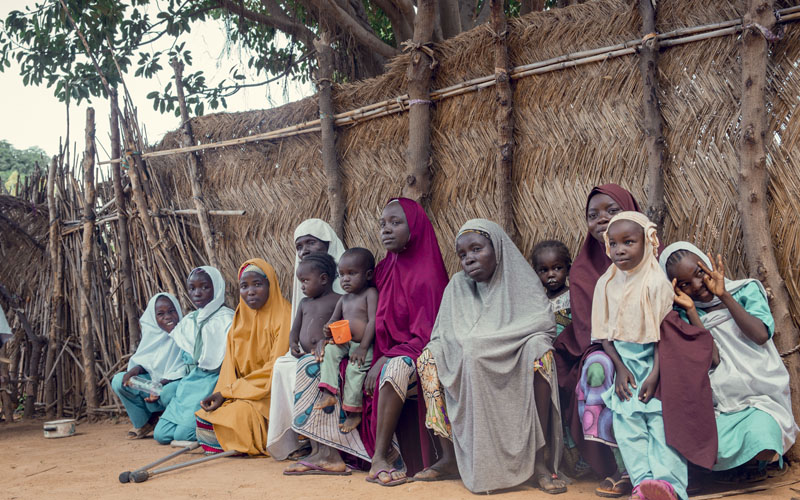+234 912 443 7374

At Rural Water Access Foundation (RUWAF), we believe that access to water and sanitation is incomplete without addressing the social and cultural barriers that affect the dignity, safety, and rights of women and girls. Our GBV and FGM Prevention Programs are integrated into our broader WASH and health interventions to promote gender equity, challenge harmful norms, and protect vulnerable groups in rural communities.
We begin by identifying high-risk communities through field data, referrals from local authorities, and reports from existing networks. We consult traditional leaders, women’s groups, youth associations, local CSOs, and religious institutions to assess attitudes and practices around GBV and FGM. These stakeholders are engaged as key partners in driving change, ensuring that interventions are culturally sensitive and locally owned.
We organize community sensitization sessions using culturally appropriate and gender-sensitive approaches. These forums include:
- Open discussions on the dangers and human rights implications of GBV and FGM
- Testimonies from survivors (where safe and possible)
- Health talks by trained professionals
- Use of drama, local storytelling, and visual tools to spark dialogue
Men, boys, community leaders, and women are all involved to foster inclusive solutions and challenge deeply rooted beliefs.
RUWAF trains local advocates—such as female community leaders, youth influencers, teachers, and health workers—as Anti-GBV and Anti-FGM Champions. These individuals are equipped with accurate information, referral pathways, and skills to:
- Raise awareness on gender-based violence and harmful traditional practices
- Support victims in a confidential and trauma-sensitive manner
- Promote respectful relationships and gender equality
Peer education programs in schools and youth centers amplify the reach of the campaign.
We integrate GBV and FGM prevention messages into our menstrual hygiene and WASH programs in public schools. Activities include:
- Life skills sessions on self-esteem, consent, and personal safety
- Educating girls and boys on rights, reporting abuse, and accessing help
- Establishing Safe Space Clubs for girls to express themselves freely
We work with teachers and school management to ensure safe learning environments.
RUWAF collaborates with local health facilities, legal aid groups, and women-focused NGOs to provide survivors with access to:
- Medical care and counseling
- Legal advice and protection services
- Reintegration support where necessary
We ensure confidentiality and respect survivors’ choices throughout the process.
In FGM-practicing communities, we introduce Alternative Rites of Passage ceremonies that celebrate girls’ growth without physical harm. These symbolic transitions are co-created with community elders and often include cultural performances, empowerment messages, and certificates.
We also work towards Community Declarations—public commitments by leaders and residents to abandon FGM and GBV practices.
We run awareness campaigns using radio programs, mobile outreach vans, social media, and IEC materials (Information, Education, Communication) to reach wider audiences. Campaigns are conducted in local languages and adapted to rural realities.
We track program outcomes through feedback forms, community feedback loops, reported cases, and behavior change indicators. Insights are used to adjust strategies and replicate successful models across other at-risk communities.